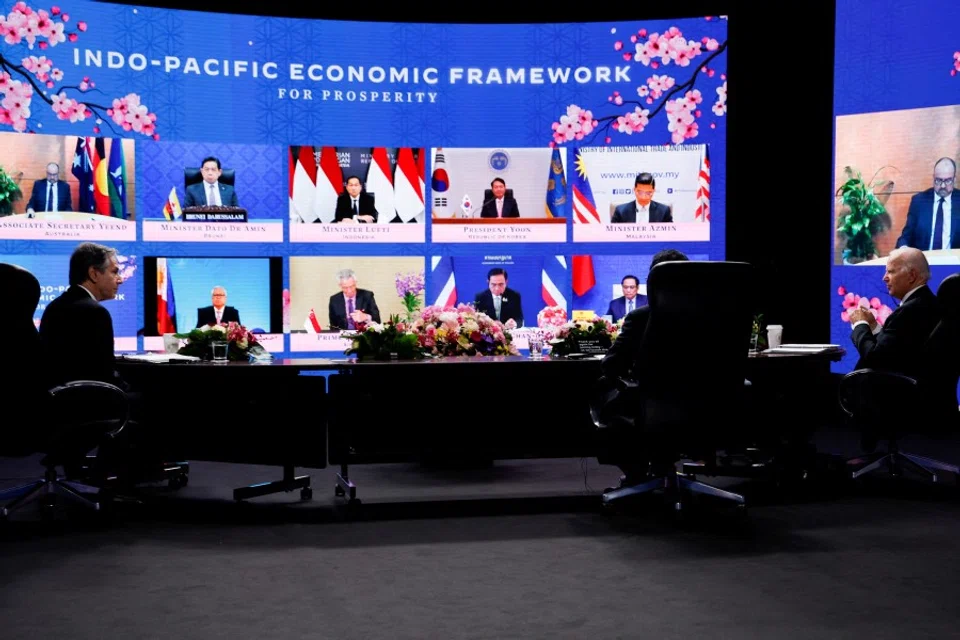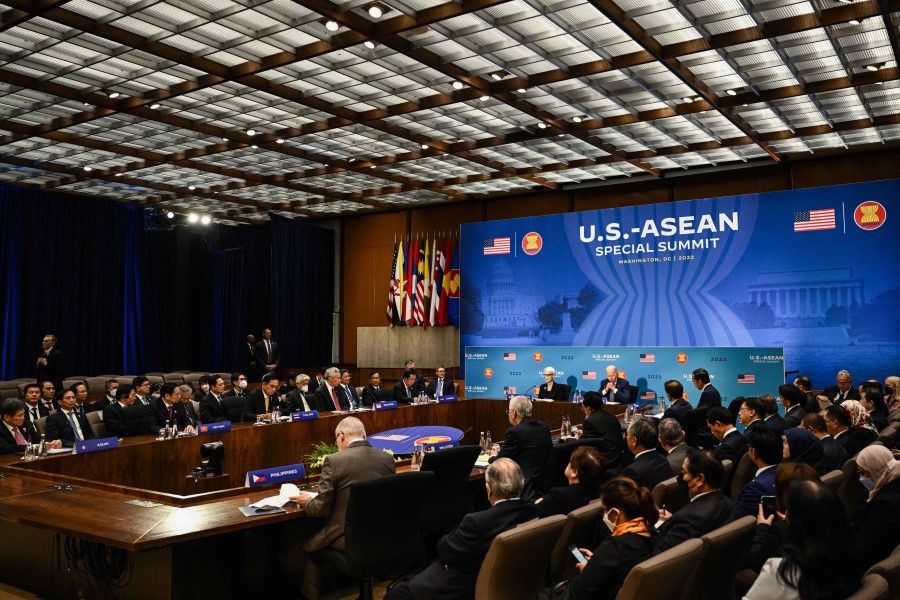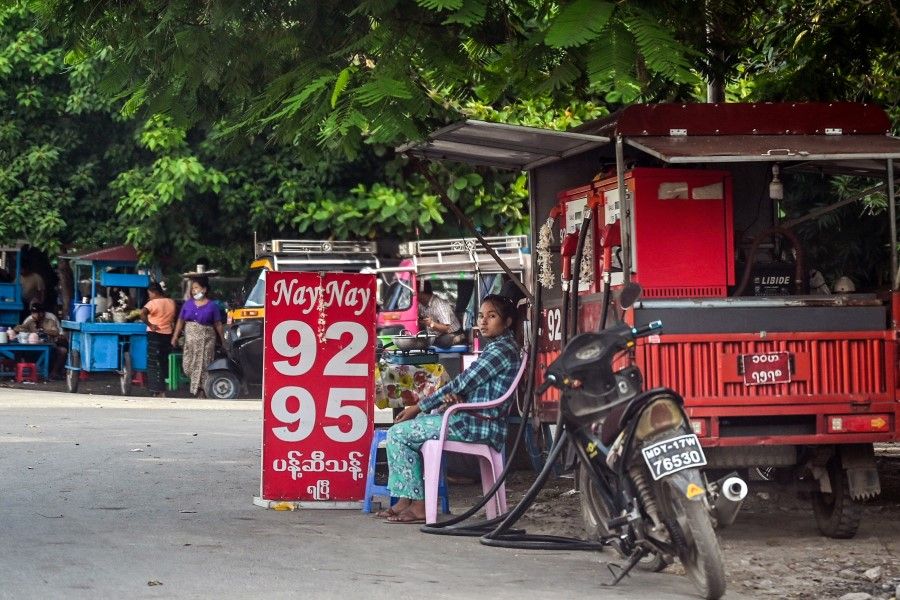IPEF: How committed are the US and ASEAN countries?

The US has positioned the Indo-Pacific Economic Framework for Prosperity (IPEF) as a priority in its trade policy, reflecting a desire to play a leading role in setting rules "to tackle 21st century economic challenges". The IPEF comprises four pillars: trade; supply chains; clean energy, decarbonisation, and infrastructure; as well as tax and anti-corruption.
On supply chains, US Secretary of the Treasury Janet L. Yellen remarked at the Atlantic Council on 13 April that "rather than being highly reliant on countries where we have geopolitical tensions and can't count on ongoing, reliable supplies... we have a group of countries that have strong adherence to a set of norms and values... and we need to deepen our ties with those partners and to work together to make sure that we can supply our needs of critical materials." This is illustrative of the "friendshoring" being advocated by the Biden administration.
Participation in the IPEF from ASEAN member states was initially expected to stop at a few countries, partly because IPEF does not include market access to the US, and also owing to suspicion and doubt on the side of some ASEAN member states that the US did not regard them as "friends".
This sense of distrust was compounded by the disregard that the former Trump administration showed to the ASEAN countries, and the Summit for Democracy held by the Biden administration in December 2021. Among the over 100 invitations that the US extended to countries and regions around the world, only three went to ASEAN member states - Malaysia, Indonesia, and the Philippines. Several of the rest of the ASEAN countries labelled by the US as "non-democratic nations" suffered a loss of face, amplifying their distrust of the US.
...the Biden administration, joined by related Cabinet members and Democratic Party leadership, rolled out the red carpet for ASEAN leaders, seeking the understanding and endorsement of the IPEF from the ASEAN side.

However, the supply chains of even those countries cannot be dismissed. At the US-ASEAN Special Summit held in Washington DC in mid-May ahead of the establishment of the IPEF in Japan, the Biden administration, joined by related Cabinet members and Democratic Party leadership, rolled out the red carpet for ASEAN leaders, seeking the understanding and endorsement of the IPEF from the ASEAN side.
The warm reception even prompted Prime Minister Hun Sen of Cambodia, which has traditionally taken a pro-China line, and has been under US economic sanctions for corruption and human rights violations, to remark that "relations between Cambodia and the US are at the 'highest level' in recent decades". In the end, seven member states from ASEAN were named as founding members of the IPEF.
The major ASEAN member states that joined IPEF saw it as a ticket to the "friendshoring" being pursued by the US and declared their participation for the time being.
Differing agendas among member and non-member states
The major ASEAN member states that joined the IPEF saw it as an entry ticket to the "friendshoring" being pursued by the US and declared their participation for the time being. A country joining the IPEF can also be taken to have been accepted by the US as a friendly country that shares the same values, in other words, a democracy. This may give some of these countries a boost in self-esteem.
Additionally on the economic side, even if the supply chains of China and the US are further decoupled, IPEF participants can engage in and maintain the supply chains of both the US and China. Furthermore, if a member's own companies are brought in to replace Chinese companies that have been excluded from US supply chains, those countries can enjoy even greater benefits.
In the coming months, countries that have shown interest in the IPEF will select the pillars in which they will enter negotiations, and make their formal decisions to join. (NB: Countries can choose to join any number of pillars, but need to fulfil the commitments of each pillar they sign up to.) The White House has said that based on the final outcome of the negotiations, separate procedures and criteria will be established for new members wishing to join in the future. This may have given an additional push for some countries to join as founding members.
But Myanmar, Cambodia, and Laos have not joined the IPEF. Myanmar, which is ruled by a military junta that seized power from the democratic government, cannot possibly share the same values. While if Cambodia, as ASEAN chair, were to join the IPEF, it could give the impression that ASEAN itself is sliding close to the US side. By joining Laos in opting not to take part, it is also possible that the two countries are expecting future economic benefits from China.
In that case, as with the Trans-Pacific Partnership Agreement (TPP), which was buried by President Trump, the [IPEF] negotiation themselves could come to nothing depending on the outcome of the US mid-term elections in November and the presidential election two years later.

Particularly in Laos, which is in the midst of a default crisis, there are expectations of debt reduction negotiations with China. By the end of 2020, Laos' outstanding obligation had risen to US$17.2 billion, roughly 95% of its GNI, but its foreign exchange reserves were only 8.1% of this outstanding obligation. This is even lower than that of Sri Lanka (9.3%), which fell into default in May 2022, and Pakistan (12.5%), which is grappling with its second default crisis.
ASEAN is not in the same boat as the US
A few member states joining the IPEF does not remove ASEAN's suspicion and distrust of the US. For instance, the Presidential Trade Promotion Authority (TPA) in the US expired in July 2021, returning the authority to negotiate over trade and tariffs to Congress. The Biden administration is trying to implement the majority of the IPEF as an administrative arrangement without the need for congressional approval. This means that the White House is negotiating and implementing the IPEF only to the extent that no domestic laws are changed.
In that case, as with the Trans-Pacific Partnership Agreement (TPP), which was buried by President Trump, the negotiations themselves could come to nothing depending on the outcome of the US mid-term elections in November and the presidential election two years later.
Hence, the seriousness of the Biden administration's efforts to make the value and importance of the IPEF known, not only in the Indo-Pacific region but also at home, is being questioned. At the same time, those major ASEAN member states that have joined the IPEF are calmly observing to see whether the US qualifies as a true "friend" to them.
Related: India's choice: Pro-US, pro-China or stay autonomous? | Competition between democracy and autocracy a political fallacy | 'Doomed to fail': Chinese media dismisses the US's ASEAN diplomacy | US-ASEAN summit: Washington still has an uphill climb | Biden's Asia tour: US deepening its commitments to counter China
